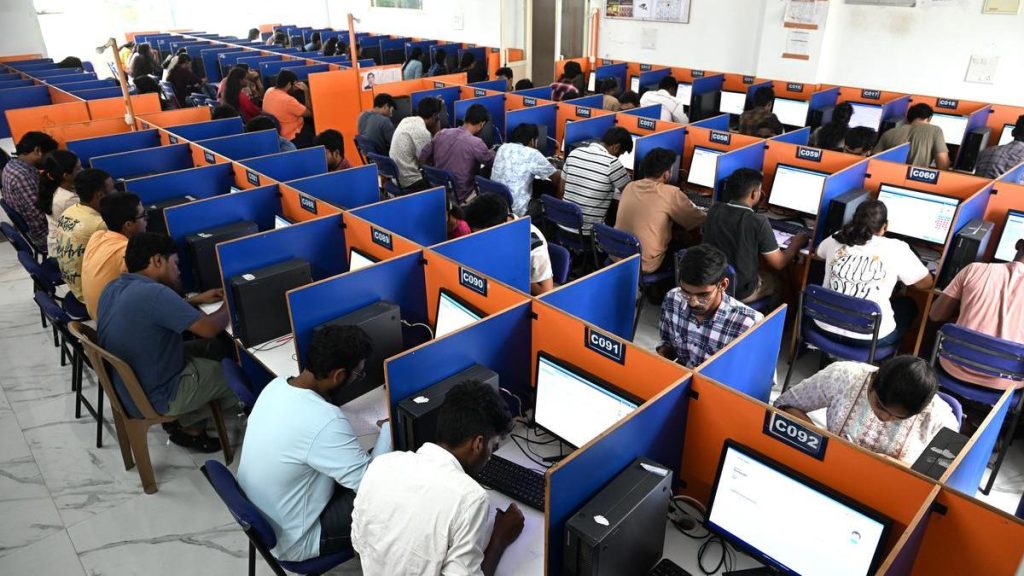Now Reading: Writers, Thinkers Criticize Karnataka’s Move to Lower SSLC Pass Percentage
-
01
Writers, Thinkers Criticize Karnataka’s Move to Lower SSLC Pass Percentage
Writers, Thinkers Criticize Karnataka’s Move to Lower SSLC Pass Percentage

Rapid summary
- Decision: the Karnataka government reduced the pass percentage for the Secondary School Leaving Certificate (SSLC) exams from 35% to 33%.
- Implementation: Under new rules, students can pass if they score at least 30 marks out of 100 in a subject-splitting internal assessment and external exam requirements.
- Concern Raised: Writers, progressive thinkers, and educationists have opposed this move, citing concerns over declining education quality.
- Details Shared in Protest: Examples highlighted how students scoring well in internal assessments but minimally in external exams can still qualify as passing despite insufficient learning demonstrated externally.
- Action Taken by Opponents: A letter has been sent to Karnataka’s Chief Minister urging the withdrawal of this gazette notification.
Indian Opinion Analysis
This decision by the Karnataka government prompts critical reflection on its impact on educational standards. While reducing pass percentages could help improve overall success rates for SSLC exams, it raises pertinent concerns about maintaining quality benchmarks. Critics argue that a system allowing students to pass with minimal external performance may weaken accountability and diminish incentives for robust academic preparation.
From a policy standpoint, balancing inclusivity with rigorous educational standards is crucial. This debate highlights an underlying tension between short-term success metrics versus long-term enhancement of learning outcomes. Decisions affecting student evaluations should prioritize fostering genuine learning rather than superficial attainment of results-a principle emphasized by education experts opposing such changes.
For broader implications, if similar policies gain traction nationwide or set precedent in other states, they may influence India’s future workforce competency levels substantially. Stakeholder feedback like this underscores the importance of clear consultations before implementing major shifts affecting foundational school-level assessments.
Read more: Published – July 30, 2025























